Thailand NOW Turns 1: Celebrating a Year of Authenticity
Thailand NOW Turns 1: Celebrating a Year of Authenticity
วันที่นำเข้าข้อมูล 11 Jan 2022
วันที่ปรับปรุงข้อมูล 29 Nov 2022
Thailand NOW Turns 1: Celebrating a Year of Authenticity
It’s been one year since Thailand NOW was launched into the media landscape committed to exploring the cultural context of Thailand as a country, as a people, and as a way of life, bridging the gap between global and local perspectives.
To celebrate Thailand NOW’s first anniversary, we interviewed a few of this year’s icons to ask them about what people tend to see about Thailand and, more importantly, what they might be missing. We were joined by Duangporn “Bo” Songsivara, MICHELIN-starred chef and founder of Bo.lan Grocer; Sakson Rouypirom, founder of SATI Foundation; and Pattarasuda “Bua” Anuman Rajadhon, founder and director of theater company NUNi Productions (Never Underestimate New Ideas).
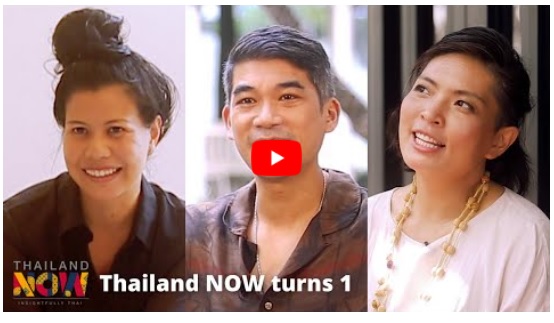
What tends to get the spotlight in Thailand?
For all three of our icons, there was no question: Thai food. Sakson and Bua were quick to point out street food, in particular, gets a lot of attention, partly because it’s advertised but also because of the variety across different regions.
Bo, who works with artisanal suppliers and juggles several ingredients in every dish, saw it as part of the fertile landscape of Thailand.
“I enjoy the natural resources, the beaches, the mountain ranges, the abundance of natural resources that come from every direction.
”Within the realm of Thai cuisine, she notes that som tam, tom yum soup, and Massaman curry tend to get all the glory.
What are some things people overlook?
For individuals who are passionate about what they do, it’s no surprise that their minds went to their work. But perhaps what was most interesting is how each person, in their own way, felt that the thing we overlook is the people.

Bo, as a chef who named one of her restaurants Bo.lan (a play on her name and the Thai word for “ancient”), was initially preoccupied with how Thai cuisine was originally meant to be enjoyed.
“When people come to Thailand, they eat one dish. When they want to have som tam, they [just] have som tam. But there is much more than that… When we eat Thai and understand Thai food properly, you don’t eat one single dish. If you have som tam, you definitely have to have the grilled chicken, the sticky rice, the larb… then you balance the whole meal together.“
Thai cuisine is all about the balance of different flavors and textures. This also explains why the food experience in Thailand tends towards social dining: when you’re only eating part of several dishes, you’ll need several stomachs to finish them.
But more to the point: Bo felt that learning more about Thai cuisine would inevitably lead to a greater interest in how Thais source the dozens of ingredients that go into every meal.
“You will enjoy learning about new herbs, new plants, new greens that you have never heard of. Once you understand that, you’re going to explore the food system in Thailand: small-scale farmers, small-scale fishermen, and how they take care of the land, the water, the air.”
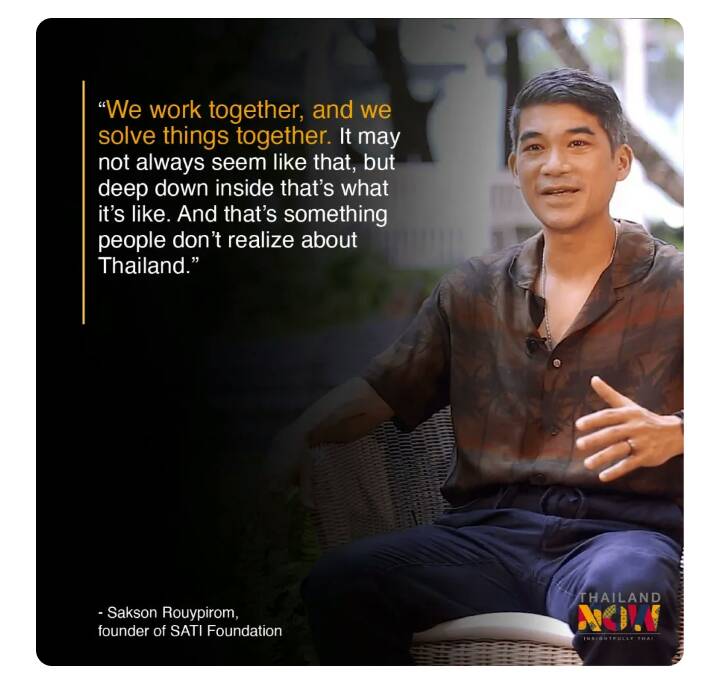
Sakson, whose foundation, SATI, was named after the Thai word for “mindfulness,” talked about Thai people’s emotional state amid the COVID-19 crisis.
“During COVID, what I’ve seen is people tend to talk about the happiness, the sabai-sabai of Thai people, which is actually one of the positives that I’ve seen during COVID, because it’s a stressful time.”
Besides public health and the broader economy, the social entrepreneur said that recovering from the pandemic is also about mental health.
“When I go in the community and ask ‘How are things?’ they’re like, ‘Things are pretty bad, people are getting COVID, we’re out of work,’ but they always say, ‘Diew ja dee khuen (it’s gonna get better).’ And that’s something I think is very unique in Thai culture, that resilience.”
More than simply being sabai-sabai or “chill,” Sakson believes that this attitude reflects a kind of optimistic collectivism.
“We work together, and we solve things together. It may not always seem like that, but deep down inside that’s what it’s like. And that’s something people don’t realize about Thailand.”
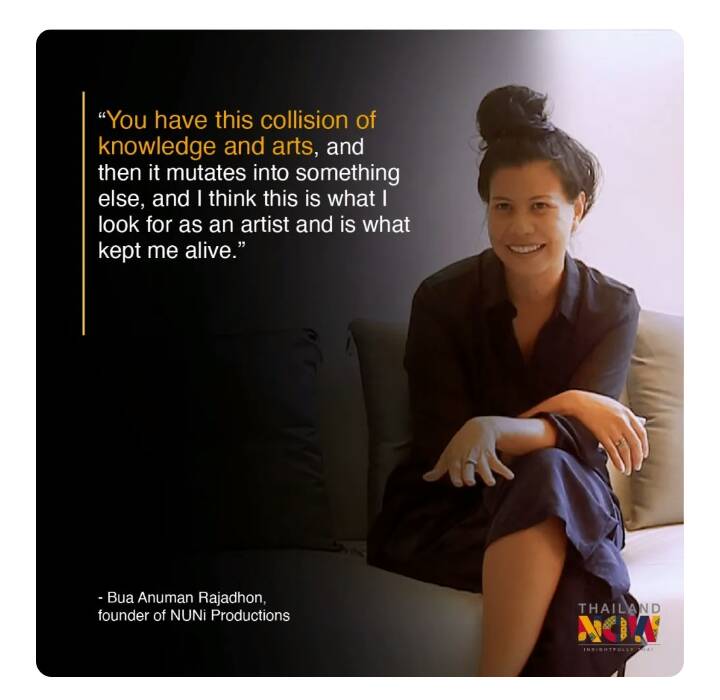
If Bo called attention to the way Thai people feed themselves, and Sakson shared their emotional resilience, then Bua talked about their ideas.
The accomplished theater director often finds herself attending her friends’ rehearsals and film screenings, where some of the most dynamic cultural exchanges are occurring between Thai and foreign artists.
Take the BACC’s Bangkok Theatre Festival, for example, which features smaller, independent productions with original scripts.
“You get to talk to the people in the audience afterwards. I think these are what stimulate my mind, and this is what I like about Thailand,” she said. “You have this collision of knowledge and arts, and then it mutates into something else, and I think this is what I look for as an artist and is what kept me alive.”
Why is it important for people to see these other sides to Thailand?
For Bo, one silver lining of the pandemic has been exploring what she’s really passionate about: sustainable food systems. While her restaurants had always made sustainable choices, such as using tiffin carriers instead of disposable to-go boxes, her pivot to grocer has broadened the ways that sustainable foods are being enjoyed.
The Thai chef believed that a greater interest and understanding in Thai cuisine and sustainable food systems in the country would lead to what she called “eco-friendly mindfulness.”
“I truly, truly believe that when we travel with knowledge, better understanding of different [dimensions] of the cultures, of the traditions…we will travel with a lot more [open-mindedness], lighter hearts, and kinder souls.”

Perhaps because Thailand is majority Theravada Buddhist, mindfulness is a recurring theme in the people’s discussions of how to interact with each other, as well as the environment.
Sakson, who founded SATI to “mindfully improve health care and education for underserved and at-risk youths in Thailand,” said that you can see this in Thai culture.
“The Buddhist mentality or the Thai mentality is that middle ground… It’s not about the ritual, it’s not about the praying, it’s not about the incense; it’s about how you give and take,” he explained. “When people visit, they can see the kindness that exudes from the Thai people. There is cause and effect to it. There is a mindfulness to it. Whether it’s a smile that they give, for a smile in return.”
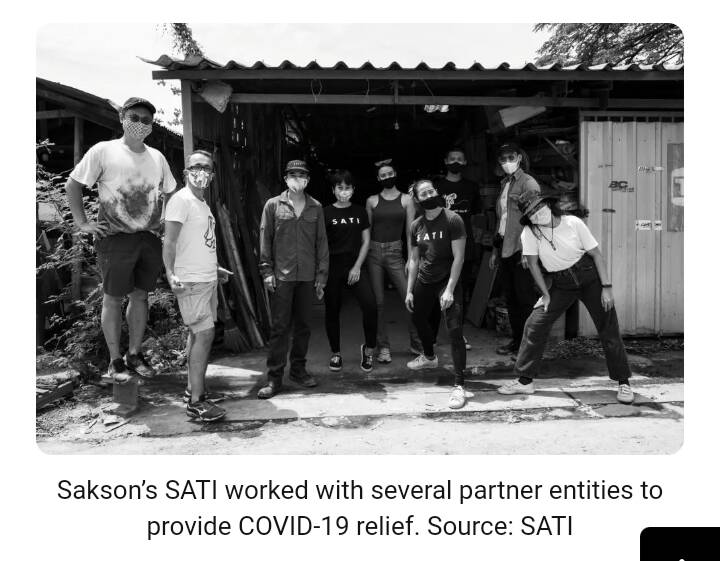
Bua, who thrives on new ideas, pointed out another kind of give and take: the exchange of information.
“I think if people get to know another person better and really get to know them and understand them deeply, there is this exchange of information and communication that happens and I think this is really vital,” according to the thespian. “Then you benefit from that because then you go create something else from that information or from that knowledge.”
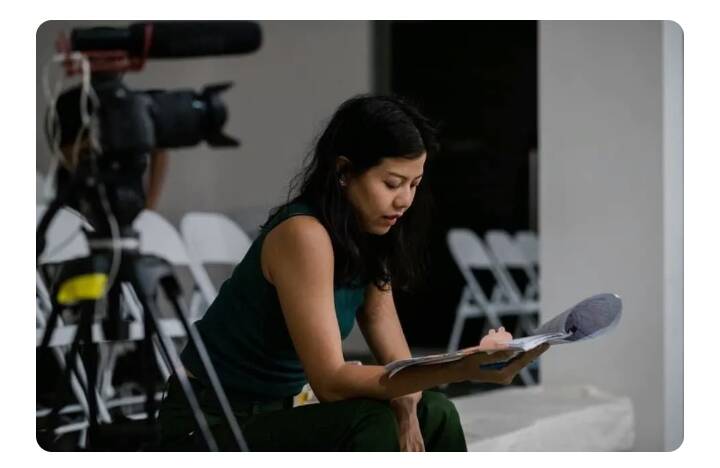
Bua thumbing through a well-worn script for My Mother’s Kitchen before the final performance at MAIIAM Contemporary Art Museum in Chiang Mai, Thailand in June 2019. Source: NUNi Productions
Why Thailand NOW
As you might expect, there can be discrepancies between English- and Thai-language content about Thailand. But according to Pensom Lertsithichai of the Thai Ministry of Foreign Affairs (MFA), it’s not just a difference of understanding but a difference of focus.
“A lot of the topics that are chosen in the news cycle are pretty much the same everywhere, all the newspapers, radio, online, social media… They’re talking about the same subject. And eventually the audience might even think that all of that represents Thailand when actually there are so many stories that are untold about Thailand.”
For many Thais who consume English-language content, there’s a nagging feeling that they can’t recognize themselves in foreign portrayals of Thai society and culture.
“A lot of Thai people are not getting their story told, and a lot of content in Thai is not being represented in English enough,” Pensom asserted.

Pensom Lertsithichai (left) and Maratee Nalita Andamo (right) have been instrumental in guiding the editorial direction of Thailand NOW.
These are the problems that the MFA is trying to address through the Thailand NOW initiative. For Maratee Nalita Andamo, who serves on the MFA Thailand NOW editorial board, the platform does this best through its Icon NOW interview series.
“I think they are absolutely my favorite part about Thailand NOW,” she declared. “Each and every single Thailand NOW icon has a story to tell.”
As 2021 draws to a close, Maratee has high hopes for the future of the platform, noting the country’s reopening and APEC chairmanship. Her guiding light for the direction of Thailand NOW is, in a word, authenticity.
“More topics, more writing, more authentic writing,” she said. “Really reach everyone we feel is craving authentic content. And we’re there, we’re ready to give it to them.”
สถานเอกอัครราชทูต ณ กรุงเตหะราน
Office Hours: Sunday to Thursday, 08:30-12:00 and 13:00-16:30 (Except public holidays)